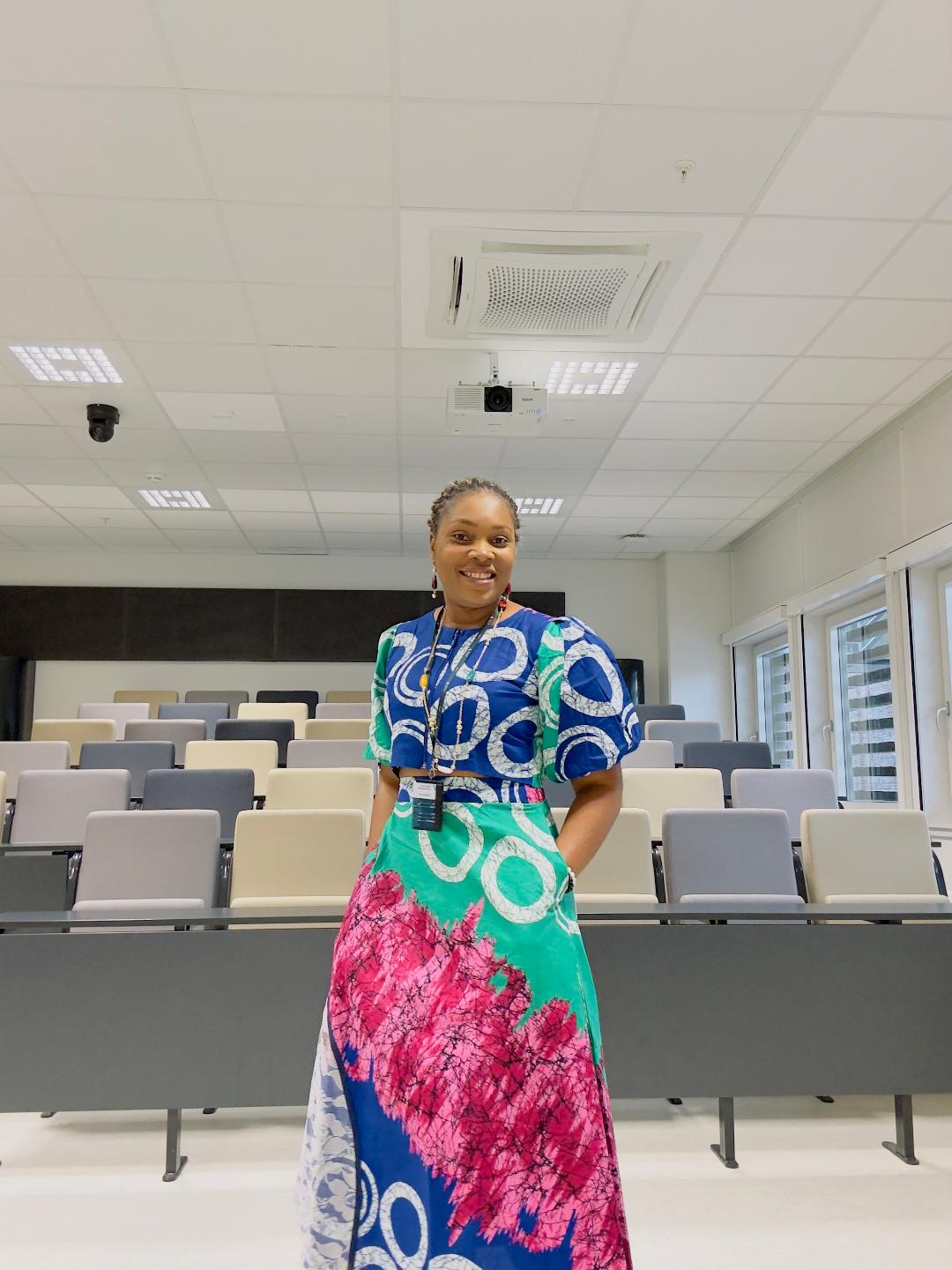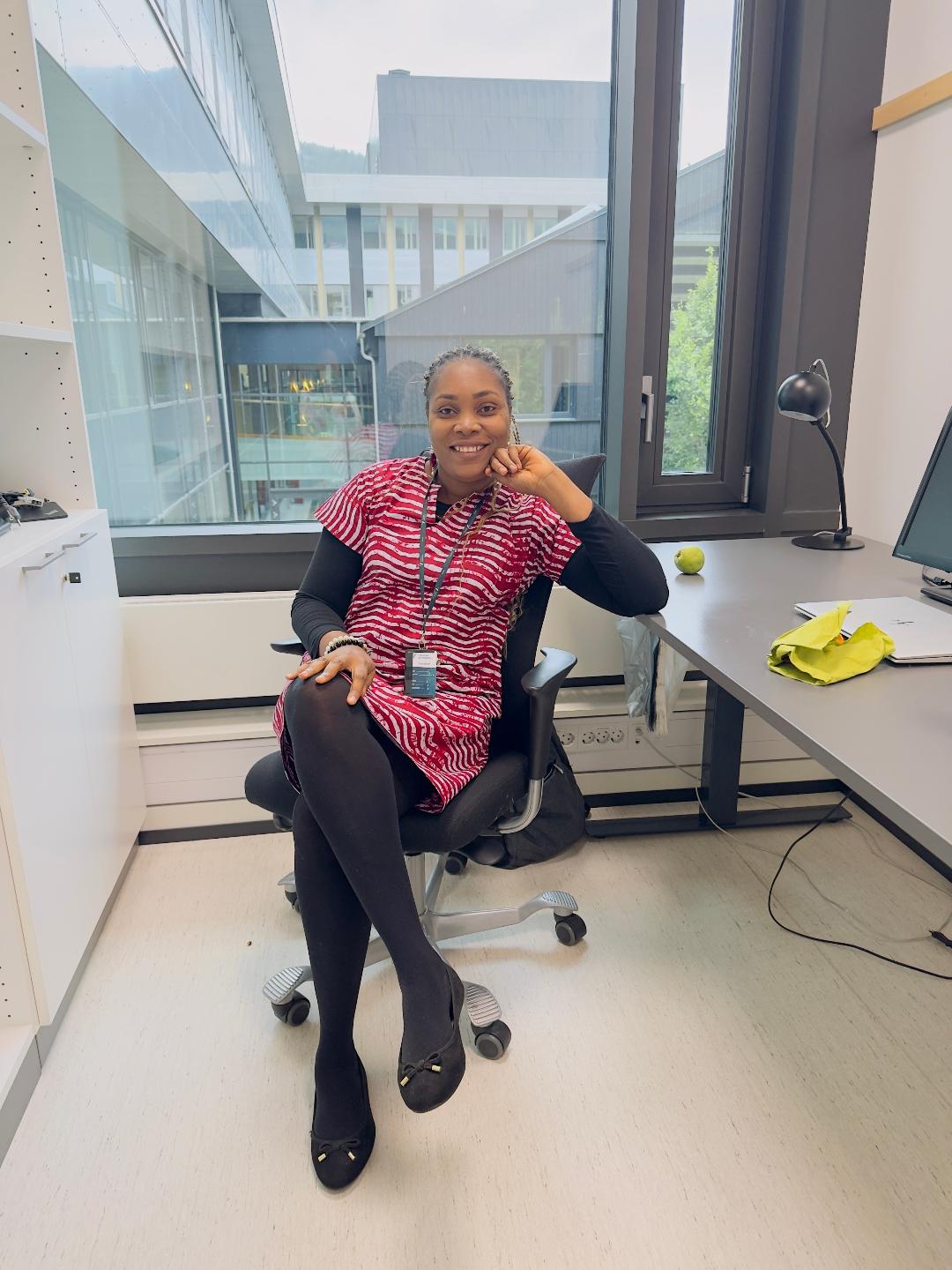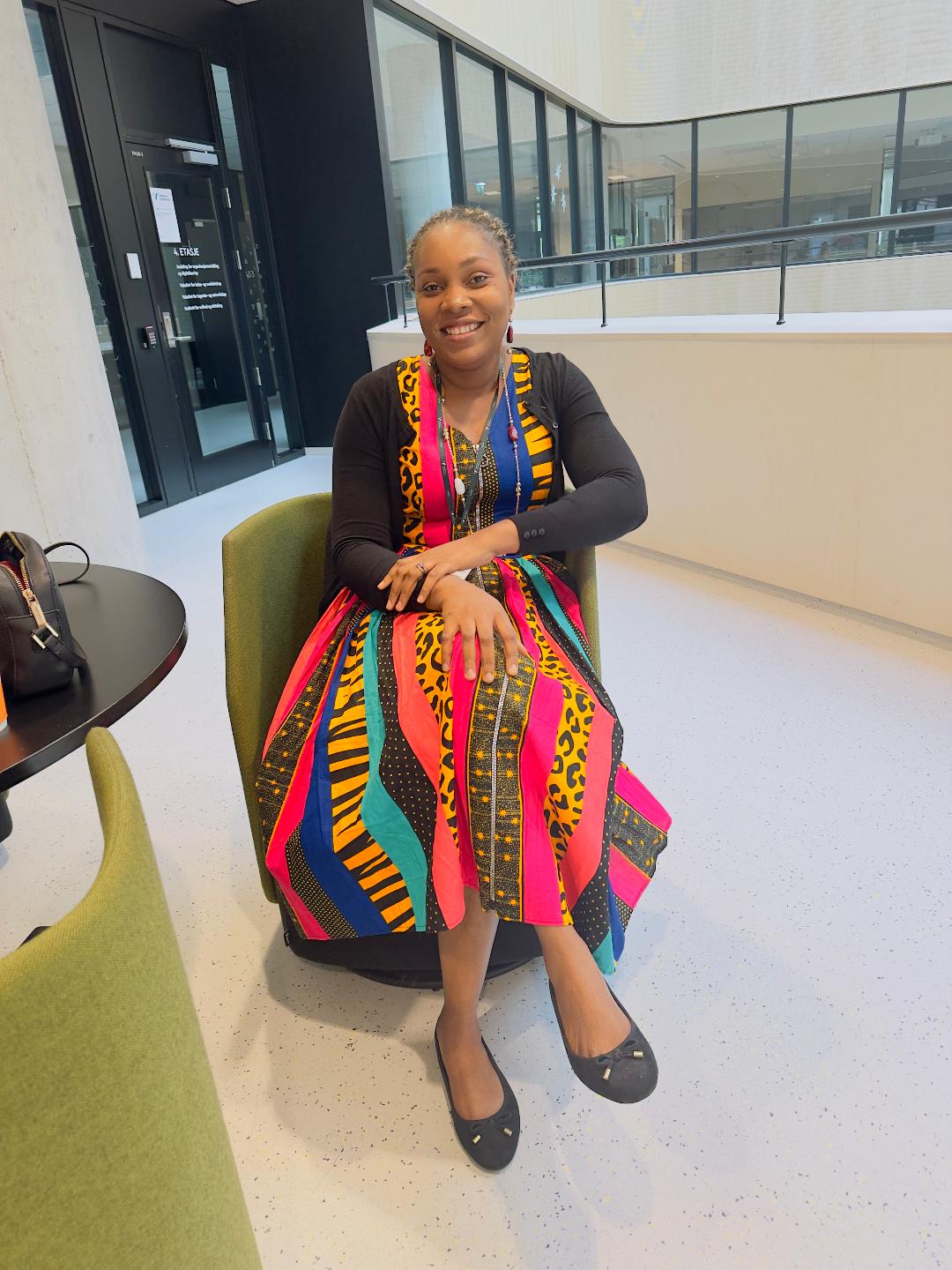
Dr Inyene Nkanta is a lecturer at the University of the West of Scotland, Scotland, United Kingdom. Inyene received her doctorate degree from Wolverhampton University. She has a master’s degree in human Resources and Industrial Management from Coventry University, United Kingdom and a Bsc in Finance from University of Uyo, Nigeria.
Inyene is a scholar in the field of Sustainability, Circular Economy and Entrepreneurship and she works across the globe on research projects. She is a visiting scholar/lecturer with CBS, Germany, Technical University of Liberec, Czech Republic, VIVES university of Applied Sciences, Belgium and Western Norway University of Applied Sciences, Norway. She is an active member of the Institute for Small Business and Entrepreneurship (ISBE), International Council for Small Business (ICSB), Centre for African Research on Enterprise and Economic Development (CAREED), Centre for Africa Entrepreneurship and Leadership (CAEL), Academy of Management (AOM0) and Diana International Research Institute.
Inyene is a Fellow of the Higher Education Academy (FHEA) and a member of the Circular Economy Institute. She is the founder of LIRE connect, an organisation that was established and committed to fostering learning through training for young women in Nigeria. She is also the Chairman of Iracoda Isabu Foundation, an NGO that supports women and youth in Nigeria through farming.
Inyene speaks exclusively to Sunday Oyinloye, Publisher, Green Savannah Diplomatic Cable

Excerpts:
As a Nigerian in diaspora you must be aware of the word “Japa” which literally means travelling to settle abroad, probably never to return to Nigeria again. Where did we get it wrong as a nation and what can be done by all stakeholders to stop this exodus by our youth?
I won’t really want to say much on this but I believe that Nigeria’s complex challenges arise from a combination of historical, political, economic, and social factors. But I will focus on our poor governance and leadership for the purpose of this interview. In Nigeria, many of our leaders focus on personal enrichment and maintaining power rather than building strong institutions and investing in development. This has contributed to widespread corruption, mismanagement, and policy deficiencies. Nigeria is rich in natural resources, particularly oil. However, revenues from oil have often been siphoned off through corrupt practices, mismanaged, or used to fund patronage networks rather than investing in infrastructure, education, healthcare, or economic diversification. Weak institutions, including the judiciary and law enforcement, have allowed corruption to thrive. This has undermined public trust in government and stunted development efforts. The concentration of wealth among small elite has left much of the population in poverty, with poor infrastructure, inadequate public services, and high unemployment rates. The inflation rate is alarming in Nigeria, particularly on food items. Garri used to be a staple food in Nigeria, now many families cannot even afford garri so why won’t people japa if they have an opportunity to. As I earlier stated, Nigeria’s challenges are rooted in a combination of historical factors, poor leadership, corruption, and governance failures. However, with the right reforms, focusing on anti-corruption, strengthening institutions, economic diversification, education, and inclusive growth, the country has the potential to overcome these challenges and fulfill its vast potential.
What is your advice for students who might want to study in Europe?
Studying in Europe offers a wealth of opportunities, from high quality education to cultural diversity. My advice for any one that considers studying in Europe: Research the universities and programs. Check that the university is accredited. Although, the university rankings might not be such a big deal, that’s in my own opinion but it is important to check the specific program you are interested in as some schools may excel in particular fields. Many European universities now offer programs in English, but knowing the local language can be beneficial both socially and academically. Ensure you check language requirements and availability of courses in English. Make sure the degrees from European universities are recognized in your home country or any other place where you might want to work later. Understand the application process. Take note of the application timelines. European universities have varying application deadlines, often starting several months before the academic year. Plan ahead to meet all deadlines. Ensure you meet the entrance requirements in advance. Financial Planning is also important. Some countries like Germany and Norway offer free or low-cost education, while others like the UK, Ireland, and Switzerland) may have higher fees. Look into scholarships like Erasmus+, university-specific scholarships, or those from your home country to help cover tuition and living expenses. Another thing to consider is cost of living. Different European cities have vastly different living costs. For example, the cost of living in cities like Paris, London, or Stockholm is much higher than in places like Lisbon or Warsaw. Visa and Legal Requirements is something that is also important. Most non-European students will need a student visa or residency permit. Hence, start the application process as early as possible, as it may take time to secure. Check whether you can work part-time while studying, as rules vary by country. Some European countries offer post-study work visas, allowing students to stay and work after graduation, which could be crucial if you plan to gain work experience.
What challenges did you encounter when you moved to Europe and how were you able to overcome those challenges?
Moving to Europe as an international student presents a range of challenges, from cultural adjustments to academic and social differences. It was really difficult for me to study for my PhD while also caring for my one-year-old daughter. I was on a scholarship, but for whatever reason, I lost it and became a self-funded PhD student, which was challenging. It was difficult for me to adjust to the fluctuating exchange rates and high living expenditures in the UK. To survive, I worked a variety of jobs. Childcare was another significant concern. I almost sent my daughter to Nigeria because I couldn’t cope anymore. When I couldn’t pay my tuition on time, the university logged me out. I was about to be reported to the home office, but a family member loaned me some money, so I was not reported. I believe I was really resilient. Despite the hurdles, I maintained a cheerful attitude. I looked for information that would help me as an international student.

You are an expert in Circular Economy and Entrepreneurship and I’m sure you know that many of our youths study just to earn certificates without any plans to be on their own. What advice do you have for such youths?
It’s true that many young people in Nigeria focus on earning certificates with the hope that a degree alone will secure their future. However, in today’s rapidly changing world, having a certificate is not enough to guarantee success or job security. Entrepreneurship, or at least developing entrepreneurial skills, is becoming increasingly important. While it is good to have a degree, it is more important to think beyond just getting a job. Our young people need to learn on creating opportunities for themselves and others. Look for problems you can solve in the society,(Nigeria) and consider how you can turn those solutions into businesses or side hustles. However, the government has to start creating more awareness in terms of entrepreneurship education. In addition to academic qualifications, our youth should focus on acquiring practical skills like communication, problem-solving, leadership, and digital literacy. These will make them more adaptable and marketable, whether you are working for yourself or others. Networking is very important. LinkedIn is a good platform, our Nigerian youth should leverage on that. Rather than spending their data watching unproductive videos on instagram, Facebook and the likes. Create an appealing LinkedIn profile and network on the platform. Build relationships with people from different fields. Networking can expose one to new opportunities, ideas, and partnerships that can lead to entrepreneurial success. Be ready to take some risks, calculated risks. Don’t be afraid to make mistakes, as they are part of the learning process. What’s important is resilience, being able to bounce back, learn, and keep moving forward. While certificates are valuable, they are just tools. Real success comes from using your skills, ideas, and determination to create value, solve problems, and seize opportunities, whether you choose to work for others or yourself.
Why did you set up LIRE connect and what impact has it made?
Lire Connect was founded as a platform to mentor the youths, particularly women. It is a mentoring program for youths which I believe will provide an impact across various areas of the lives of Nigerian youths and indeed African youths. I believe that the effects of the mentorship program will provide both immediate and long-term, influencing personal development, academic success, social skills, and future career prospects.
You are also the Chairman of Iracoda Isabu Foundation, an NGO that supports women and youth in farming. How are you able to run this not-for-profit organisation effectively since you are not on ground in Nigeria?
I am the chairman; the foundation has a president and other staff members. I was nominated for the position. I necessarily do not have to be resident in Nigeria. There are staffs on ground in Nigeria.
What has Iracoda Isabu Foundation done in the lives of Nigerian women and youth?
The foundation has and is still playing a vital role in supporting women in farming in rural areas in Nigeria by addressing some of their unique challenges they face and providing resources. The foundation offers training in modern farming techniques, sustainable agriculture, and organic farming to enhance productivity. We provide leadership and business skills training, enabling women to manage their farms or cooperatives effectively. We educate women on budgeting, saving, and investing in their farms to improve their financial management. Through this foundation, women have been able to secure land rights and ownership, especially in regions where cultural and legal barriers exist. Women have gained some access to credit and loans. The foundation has facilitated connections with microfinance institutions and also offered seed funding for women farmers to access capital for farming inputs, equipment, and infrastructure. The foundation has supplied seeds, fertilizers, tools, and machinery to women farmers, reducing their dependency on intermediaries or male relatives. The foundation has assisted women in forming cooperatives to negotiate better prices, share resources, and pool their products for larger markets. These are just a few of what the foundation has done in empowering women in rural areas.









